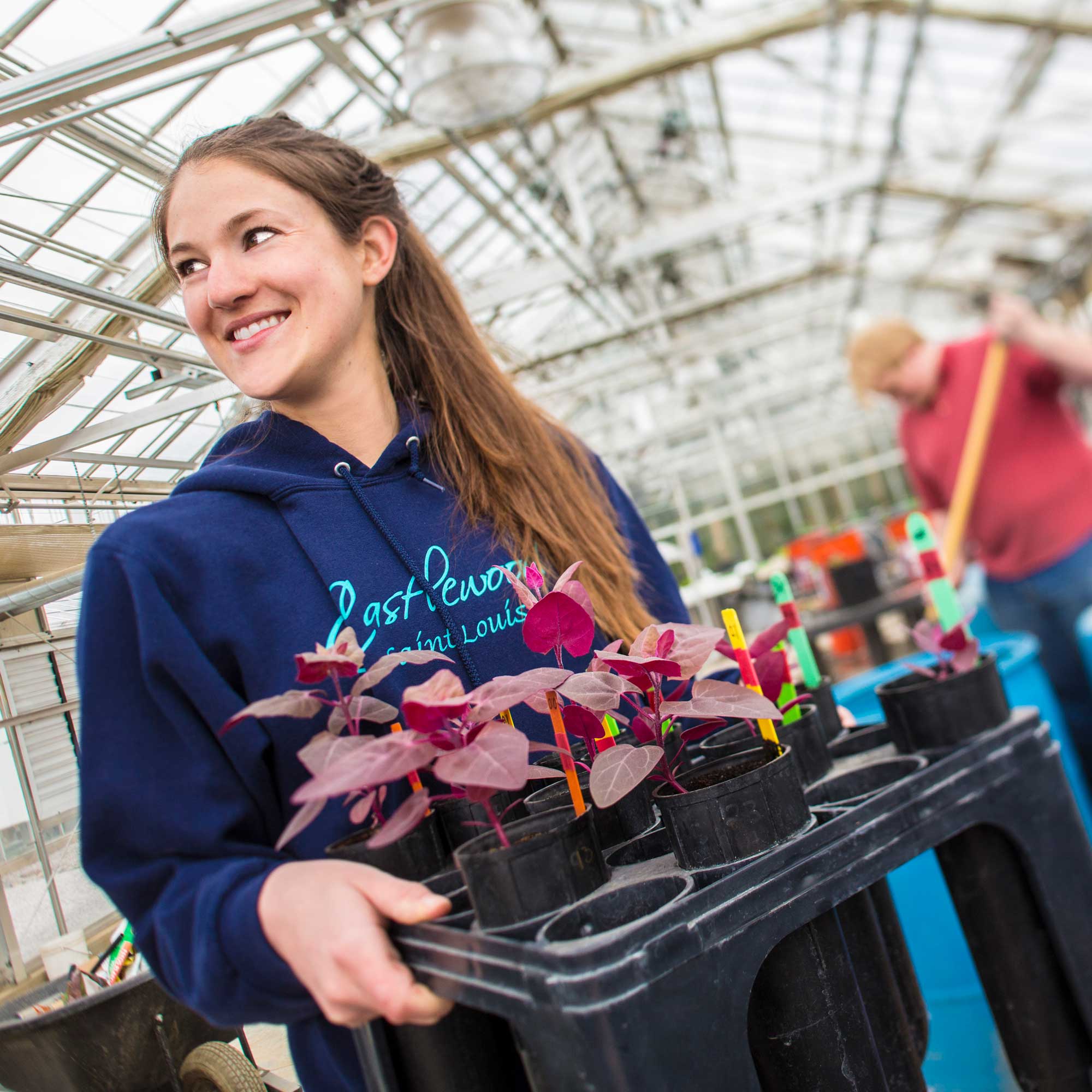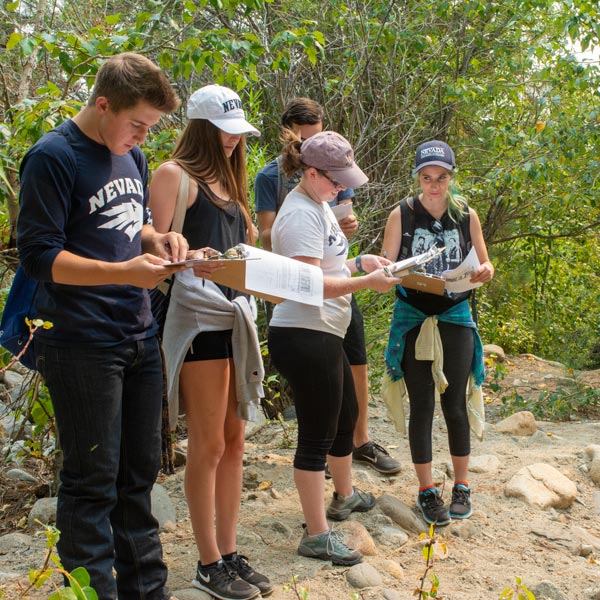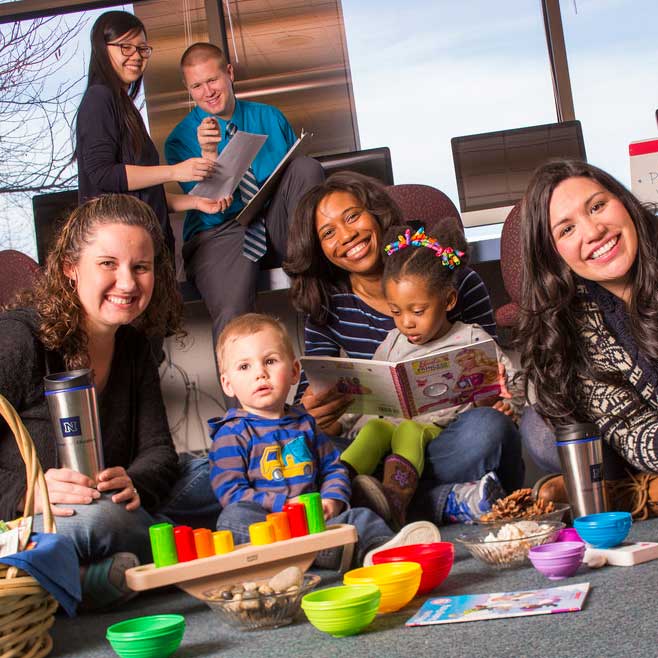In this edition
- Nevada Field Day & Ag Expo provides hands-on activities and demonstrations
- 4-H youth tackle mental health issues in their community
- May is National Wildfire Awareness Month, Nevadans urged to prepare for wildfire
- Hundreds participate in career day and medical clinic events in Tonopah
- Annual Nevada Tribal Food Summit teaches food sovereignty
About our College
A founding college of the University, we have a long tradition of excellence in teaching, research and engagement programs that benefit the health and economic vitality of Nevada. We offer programs in:
- agriculture, horticulture, rangeland and veterinary sciences
- biochemistry and molecular biology
- children, youth and families
- community and economic development
- health and nutrition
- natural resources and environmental science
Nevada Field Day & Ag Expo provides hands-on activities and demonstrations
Farm stand, wine tasting, wool products, plant sale and University research highlights of event
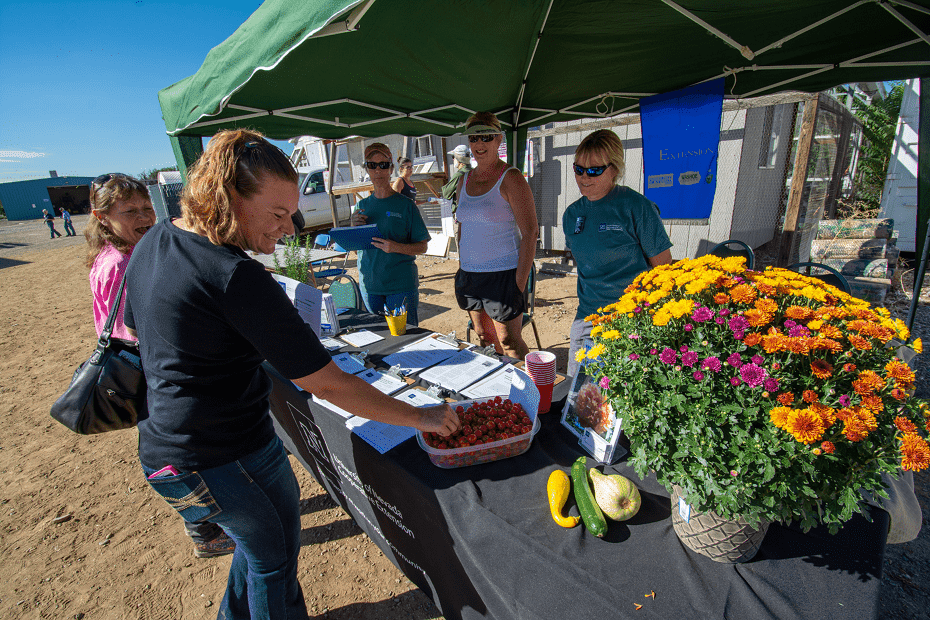
Extension’s Master Gardeners will once again be providing information at Nevada Field Day & Ag Expo, held June 2 this year, at the University’s Valley Road Field Lab and Greenhouse Complex. Photo by Robert Moore.
At Nevada Field Day & Ag Expo on June 2, the College will bring a variety of its research and work done throughout the state to its Valley Road Field Lab and Greenhouse Complex in Reno, where visitors will be treated to hands-on activities, wine tasting, a farm stand, a plant sale, demonstrations, giveaways, and tours and exhibits featuring University research. The event is 3 – 7 p.m., at 920 Valley Road.
The event will be buzzing with activities at more than 40 booths focusing on the latest advancements in agriculture, horticulture, nutrition, natural resources and the environment. A Main Stage will feature demonstrations on practical things such as container gardening and protecting your home from wildfire embers.
Faculty and staff will be on hand to provide information on the College’s undergraduate, graduate and professional development programs. Organizations the College often collaborates with will also be participating in the Expo.
King of Kings Food Truck will be selling Mexican/American fare, including tacos, burritos, hamburgers and more. Admission is free.
Engaging with our communities
“There will be a lot to see and do, and it really helps people understand how we blend the missions of the University in terms of teaching, research and engaging with our communities to serve Nevadans in their everyday lives.” - College Dean Bill Payne
4-H youth tackle mental health issues in their community
Teens find ways to make a difference in Moapa Valley
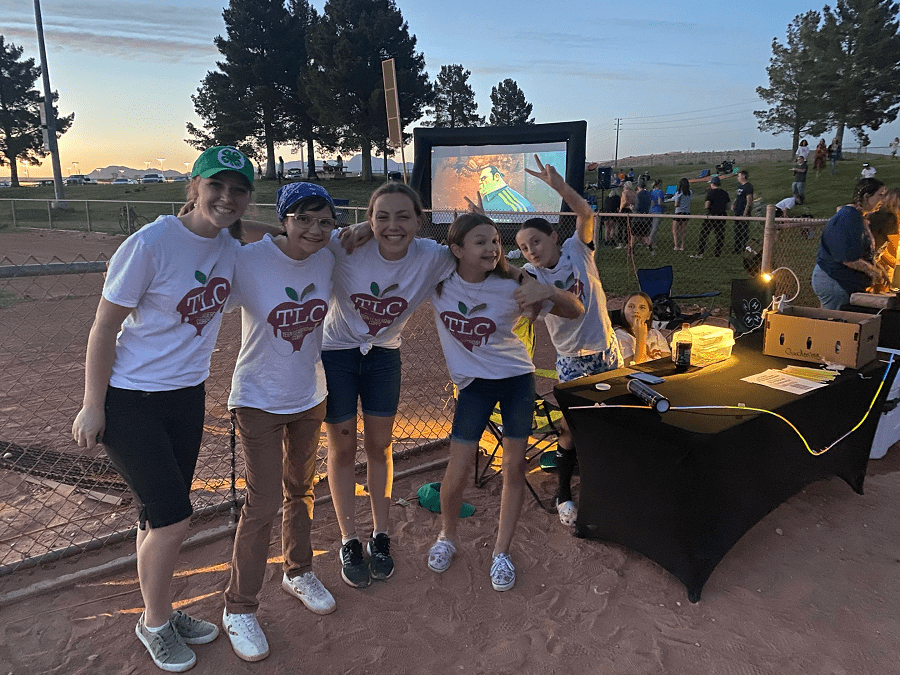
Outdoor movie night hosted by the 4-H Teen Leadership Corps raises money for the high school robotics team. Photo by Dianna Walker.
Teens in Moapa Valley are on a mission to make a difference in their community by tackling mental health issues through their 4-H Teen Leadership Corps Club, which is part of Extension’s 4-H Program. The small community has one of the highest suicide rates in Nevada.
Raising awareness
Corps members:
- Meet weekly to discuss issues in their community.
- Plan events, such as their mental health conferences.
- Recently worked to get funding for Hope Squad, a peer-to-peer youth suicide prevention program.
Faith Kelly, a 4-H Teen Leadership Corps member, said, “We put on an annual mental health fair that teaches and unites the community. For people who think they’re alone, it’s a reminder that they are not. I know we are saving lives by doing this.”
Making a difference
The club's fundraisers for the events are also opportunities for kids to:
- Be together, develop social skills and make friends.
- Learn how to hold fundraisers and reach out to businesses and civic groups for support.
- Support their peers, for example, by raising funds for the Moapa Valley High School Robotics team, which qualified for the VEX Robotics 2022 World Championship but didn’t have money to travel.
- Create a 4-H robotics club to continue building skills when school is out.
Creating community
“I'm telling you, almost every time we do any event, whether it's a 5K or barn dance or even the connectivity games that we do, there's always a moment where I kind of sit back and see that everyone is laughing and enjoying themselves, and you just feel such a great sense of community, and I always just tear up a little bit because it's just so needed right now.” - 4-H Program Officer Dianna Walker
May is National Wildfire Awareness Month, Nevadans urged to prepare for wildfire
Living With Fire Program provides information at community events and online resources
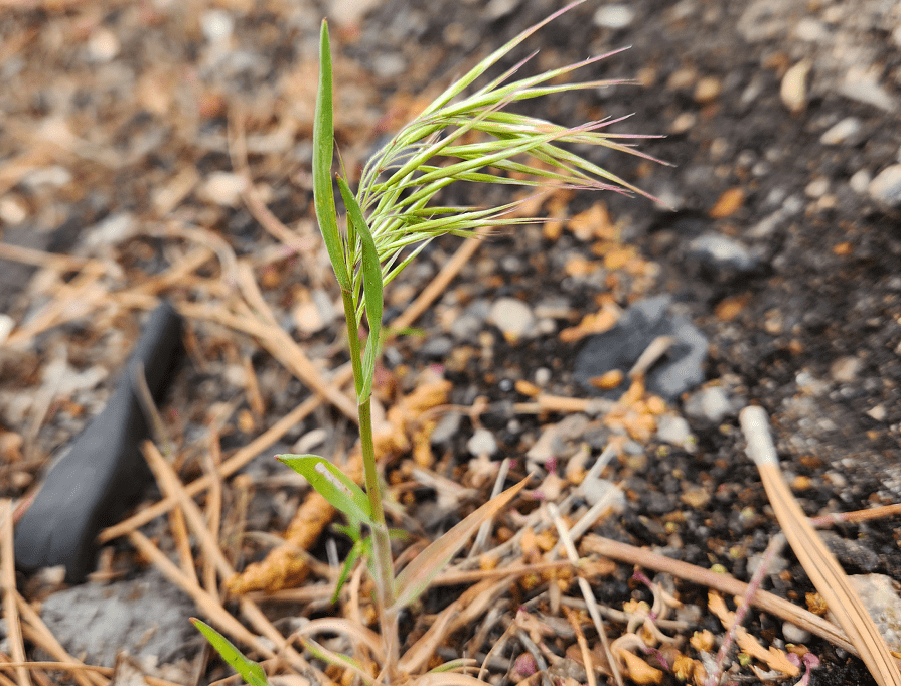
A cheatgrass plant is well on its way in southeast Reno on May 2. Photo by Jamie Roice-Gomes.
May is National Wildfire Awareness Month, and here in Nevada, we have good reason to take note – and to take action.
Extension and its partners in the Living With Fire Program are kicking off the Nevada Wildfire Awareness Campaign this month, and will be at various community events through the summer and fall, providing information to help Nevadans live more safely with the threat, and reality, of wildfire.
Extension, in collaboration with firefighting agencies and other partners, has developed a myriad of information since the program’s inception over 25 years ago, much of which is now available online.
Jamie Roice-Gomes, manager of Extension’s Living With Fire Program, says that for starters, five areas of focus should be:
- Cheatgrass
- Defensible space
- Flying embers
- Evacuation preparation
- Wildfire smoke
Preparing Nevadans for wildfire
“Cheatgrass, defensible space, flying embers, evacuation preparation and wildfire smoke are kind of a ‘big five’ to concentrate on. If you want to protect yourself and your family, and hopefully your home, just start chipping away at informing yourself about these, and doing what you can to prepare in advance.” - Living With Fire Program Manager Jamie Roice-Gomes
Hundreds participate in career day and medical clinic events in Tonopah
Extension brings University’s resources to help address critical needs in the small rural community
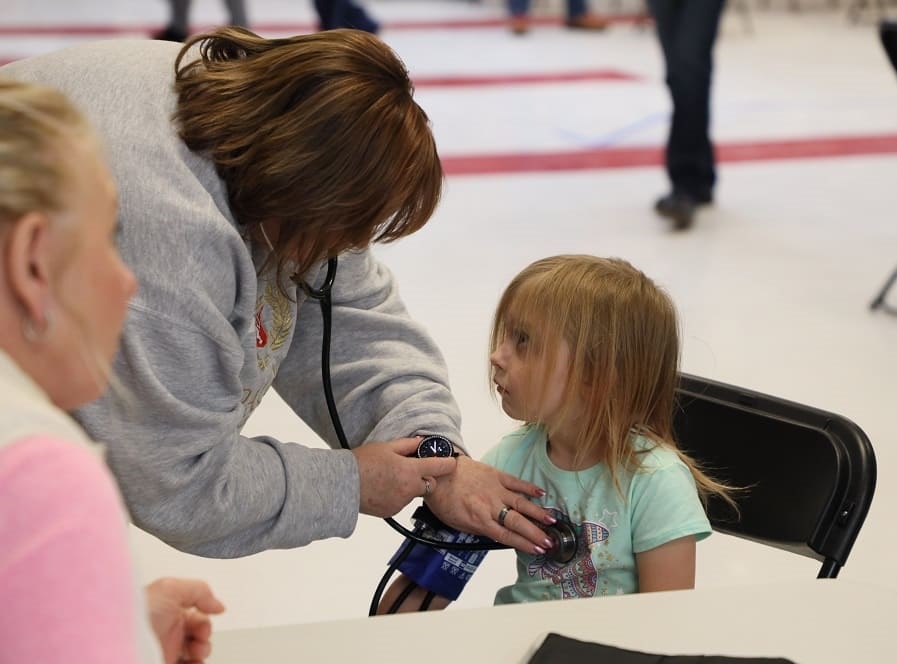
A child from Tonopah gets a medical exam as part of the Remote Area Medical Clinic sponsored and organized by Extension. Photo by Poppy Green.
A pair of recent events in Tonopah brought the community together and provided much needed resources for students and families in the rural community of northern Nye County, which is often underserved. Extension sponsored and organized both a career fair for students and a two-day medical clinic for families this spring at Tonopah High School. Staff at Extension’s office in Tonopah worked with other partners to put on both events.
Career Fair
Extension’s Misha Allen and Anna Whiteside worked with Tonopah Schools to develop the career fair, which featured:
- 136 professionals
- 50+ businesses and agencies
- 200 students
The fair is an offshoot of Extension's College Hour series of programs for students in the area.
“It became a great way for everyone in the community to see the interest of the teens here, and the teens loved seeing everyone advocating for them and their futures,” Allen said.
Two-day medical clinic
The Remote Area Medical Clinic featured:
- Medical, dental, vision and mental health services
- 179 patients
- 275 volunteers and professionals
Allen championed efforts to bring such an event to Tonopah and served on organizing committees for the event.
Making a difference
“It’s so meaningful to get to see the difference that we are truly making here. You always know you are making that difference at some level, if you think about it rationally, but at these types of events, you get to really see and feel that happening.” - Extension Educator Misha Allen
Annual Nevada Tribal Food Summit teaches food sovereignty
Event takes place at University of Nevada, Reno at Lake Tahoe for the first time
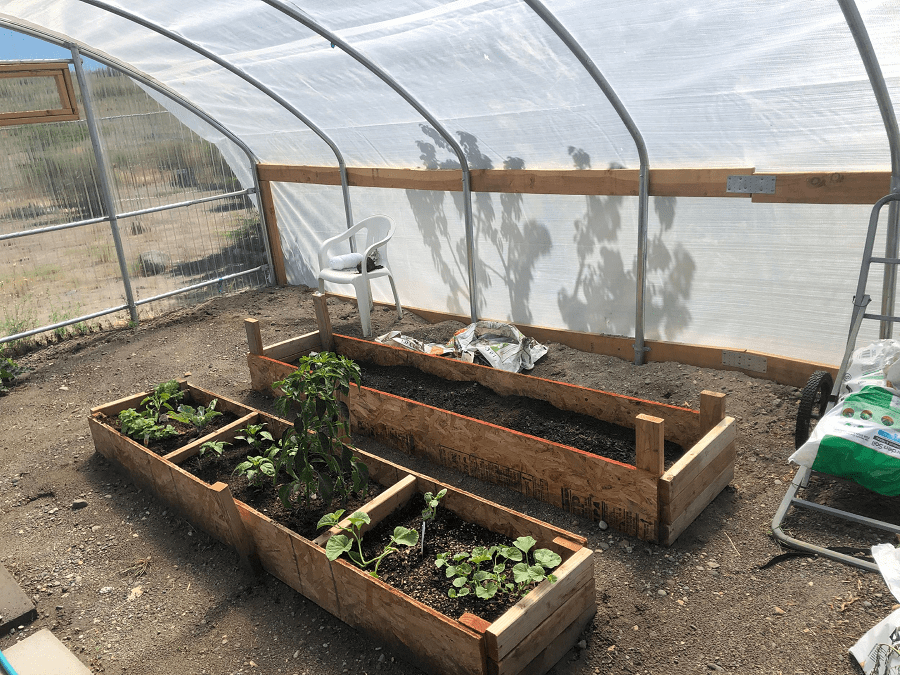
A hoop house constructed at the Pyramid Lake Paiute Reservation helps provide fresh foods to residents there. Methods to increase tribal food sovereignty are part of the annual Nevada Tribal Food Summit, May 31 – June 2, at the University of Nevada, Reno at Lake Tahoe.
Advice and resources to help American Indian tribes grow and consume their own food is the focus of the 11th annual Nevada Tribal Food Summit, May 31 to June 2. The summit will be taking place for the first time at the University of Nevada, Reno at Lake Tahoe, which is on traditional land. The event is sponsored by Extension and its American Indian Programs.
Staci Emm, professor and Extension educator, said that food sovereignty, creating a community system to grow and distribute food through sustainable methods, is the running thread that binds the event. During the summit, the College’s Tribal Students Program will present on the Desert Farming Initiative food sovereignty project.
Making an impact
“Another important facet of the summit is the use of whole or traditional foods, such as medicinal plants, and how their use can impact the entire world. We emphasize the health of tribal members first and foremost.” - Extension Educator Staci Emm
KIDS UNIVERSITY
Weeklong camps for youth | June 19 - Aug. 4

Choose from a dozen themed camps, focusing on science, technology, engineering, art and math
Innovating for Nevada
Our programs work together to make an impact
Our teaching, research and engagement programs are intertwined and complement one another. Faculty who teach on campus also conduct research as part of our Experiment Station, allowing students to learn about and participate in research. Extension faculty engaging with communities identify research needs, as well as join Experiment Station faculty to conduct research. Faculty on campus help to develop Extension programs in communities.
